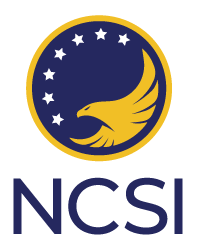Safety in youth sports is not something to take lightly. How do you know where to get started? Understanding the different aspects of safety or risk management can be overwhelming. We created a checklist that includes communication, educational, and screening action items you can take to ensure you’re doing everything possible to keep your athletes safe.
Youth sports safety checklist:
Communication:
- Emergency Contact Information: Ensure coaches and staff members collect and maintain emergency contact information for each athlete.
- Parental Consent Forms: Parents should sign a consent form that outlines the risks associated with youth sports and acknowledges their agreement to allow their child to participate.
- Mental health communication: Creating a safe space to discuss mental health challenges is essential. Athletes and parents should know who to communicate with about mental health.
- Communication protocol: An established communication protocol should outline how coaches and staff will communicate with athletes, parents, and the organization if any abuse or incidents happen.
- Safe Sport Reporting: Athletes and parents should be informed of the safe sport reporting process and encouraged to report any concerns or incidents.
Educational:
- First Aid and CPR Training: Coaches and staff members should receive first aid and CPR training to handle any medical emergencies that may arise during practices or games.
- Abuse Prevention Training: Coaches and staff members should receive abuse prevention training to identify, prevent, and report any form of abuse or misconduct.
- Concussion Awareness Training: Coaches and staff members should receive training on concussion awareness, including signs and symptoms, prevention, and management.
- Mental Health Training: This is an emerging training area that is increasingly important. Coaches and staff members should receive training on mental health and what to do in a mental health situation.
- Diversity, equity and inclusion training: All leaders, parents, and athletes should participate in this training to create and build an inclusive environment.
- Injury Prevention Training: Coaches and staff members should receive training on injury prevention, including proper warm-up and cool-down techniques, hydration, and equipment safety.
Screening:
- Reference Checks: Coaches and staff members should provide references that can verify their experience, qualifications, and character.
- Background Checks: Coaches, staff, and volunteers should undergo background checks to ensure they do not have a history of violence or abuse.
- Motor Vehicle Registry checks: If anyone is driving a vehicle, make sure you’re hiring safe drivers.
- Educational screening: This screening confirms that all coaches and staff have the proper education and have been truthful about their related experiences.
- Social media screening: Use social media screening to uncover potential red flags on social media by searching web results and all social media networks.
By checking off each action item on this list, you will be doing the most important thing for your athletes: creating a safe and inclusive space for play and competition. SportsEngine and the National Center for Safety Initiatives know how important this is and have the checks and training to help protect your athletes. Take action today to start protecting your athletes.

